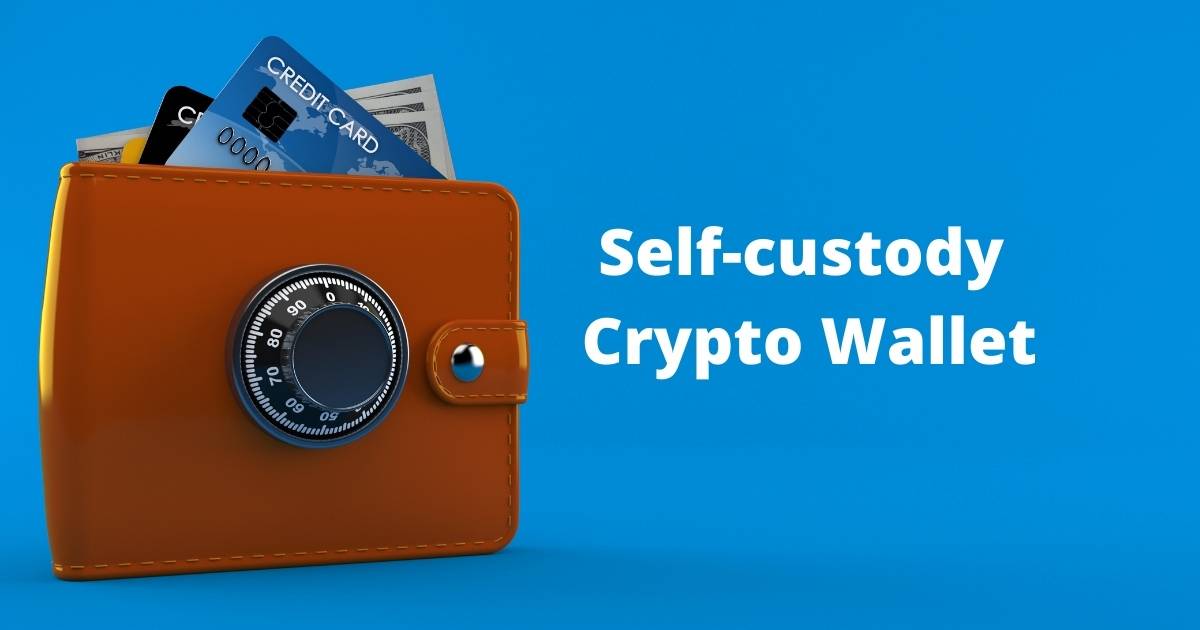
Cryptocurrencies have become increasingly popular in recent years, and with that comes the need for secure storage of your crypto assets. Self-custody wallets are a great way to store your crypto, as they give you full control over your cryptocurrency.
In this blog post, we’ll explore the advantages of self-custody wallets, how they work, the security considerations you should be aware of, and how to choose the right wallet for you. By the end of this post, you should have a good understanding of how to use them to ensure the safety of your cryptocurrency.
What Is A Self-Custody Wallet?

A self-custody wallet is a type of storage wallet that allows you to store your cryptocurrencies securely and privately. By using it, you are able to keep your funds away from the prying eyes of other individuals or institutions. This means that you can avoid the risks associated with exchanges – such as hacks or theft – and still enjoy the benefits of accessing your funds conveniently.
There are a number of advantages to using a self-custody wallet over an exchange. For example, you can keep your funds cold (or “off-line”) which gives you increased security. Additionally, hot storage wallets are not as secure as self-custody wallets and can be more susceptible to hacking attacks. Finally, self-custody wallets offer a number of unique security features that aren’t available in other types of wallets, such as private keys and seed phrases.
When choosing a self-custody wallet, it is important to consider the different types of storage options available and when each would be most appropriate for you.
Advantages Of Self-Custody Wallets

If you’re like most people, you probably have a few different wallets for your various digital assets. But what if you could combine all of them into one place? That’s the idea behind self-custody wallets – and they’re becoming increasingly popular among cryptocurrency enthusiasts.
They allow users to have increased control of their digital assets. Unlike traditional ones, which are controlled by third-party intermediaries, self-custody wallets are controlled directly by the user. This means that you always have access to your funds – no matter what – and there are no risks of theft or fraud. Moreover, because transactions with self-custody wallets are quick and secure, you can make transactions at any time of day or night.
Another advantage is that they offer a high level of security for your crypto holdings. Traditional digital wallet methods such as emailing or scanning QR codes expose your assets to the risk of theft or fraud. With self-custody wallets, however, all transaction data is encrypted using high-end encryption techniques, ensuring that your assets remain safe from harm.
Finally, one reason why many people are choosing them over traditional digital wallet methods is the opportunity to earn interest on their crypto holdings. In most cases, self-custodianship allows for higher returns on investment than traditional banking options do. This is because banks typically charge high fees for storing and handling cryptocurrencies – making them a less desirable option for long-term storage purposes. By using a self-custody wallet, however, you can keep all of your cryptocurrencies in one place without paying these exorbitant fees!
Security Considerations With Self-Custody Wallets

Cryptocurrencies are a hot topic and for good reason. They offer a number of unique benefits that traditional financial systems don’t have. One of the most popular cryptocurrencies is Bitcoin, and it’s been incredibly successful in terms of both price and adoption. However, Bitcoin isn’t the only cryptocurrency out there. In fact, there are a number of different cryptocurrencies available on the market today.
One common question that people have is what to do with their crypto holdings once they’ve acquired them. Do they keep them in a traditional wallet on their computer? Or do they store them in a self-custody wallet? The answer to this question is dependent on a number of factors, including security concerns and individual preferences.
One of the main advantages of self-custody wallets is that they provide an added layer of security compared to traditional exchanges and wallets. When you hold your crypto assets in a self-custody wallet, you are in complete control of your private keys, which are essential to accessing your assets. This means that you are the only one who has access to your funds, reducing the risk of theft or hacking.
However, it’s important to consider that self-custody wallets also come with their own set of security risks. As with any type of digital asset, they are vulnerable to malware and hacking attacks, so it’s essential to take proper security measures to protect your assets. This includes using strong passwords, regularly backing up your wallet, and keeping your device and software up-to-date with the latest security updates.
In addition, it’s also important to be aware of the risks associated with losing access to your funds. If you lose your private keys, there is no central authority or exchange that can help you regain access to your assets. This highlights the importance of proper storage and backup procedures and being mindful of the risks associated with self-custody wallets.
All In All
Self-custody wallets are a great way to store your cryptocurrency and have full control over your coins. They offer increased security and convenience, as well as a number of unique features such as cold storage options and two-factor authentication. When setting up a self-custody wallet, it is important to consider the different types of storage options available and when each would be most appropriate for you.
If you’re considering a self-custody wallet, it’s essential to educate yourself on the benefits and risks and make an informed decision that aligns with your investment goals. By following these steps, you can ensure that your funds are safe while still enjoying the benefits of cryptocurrency technology.








